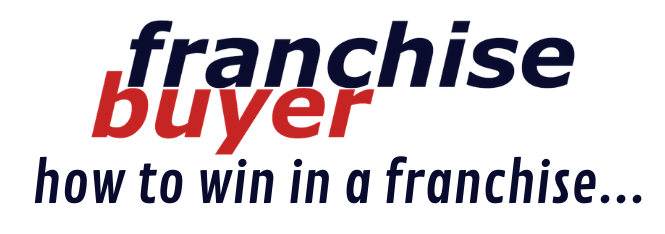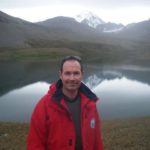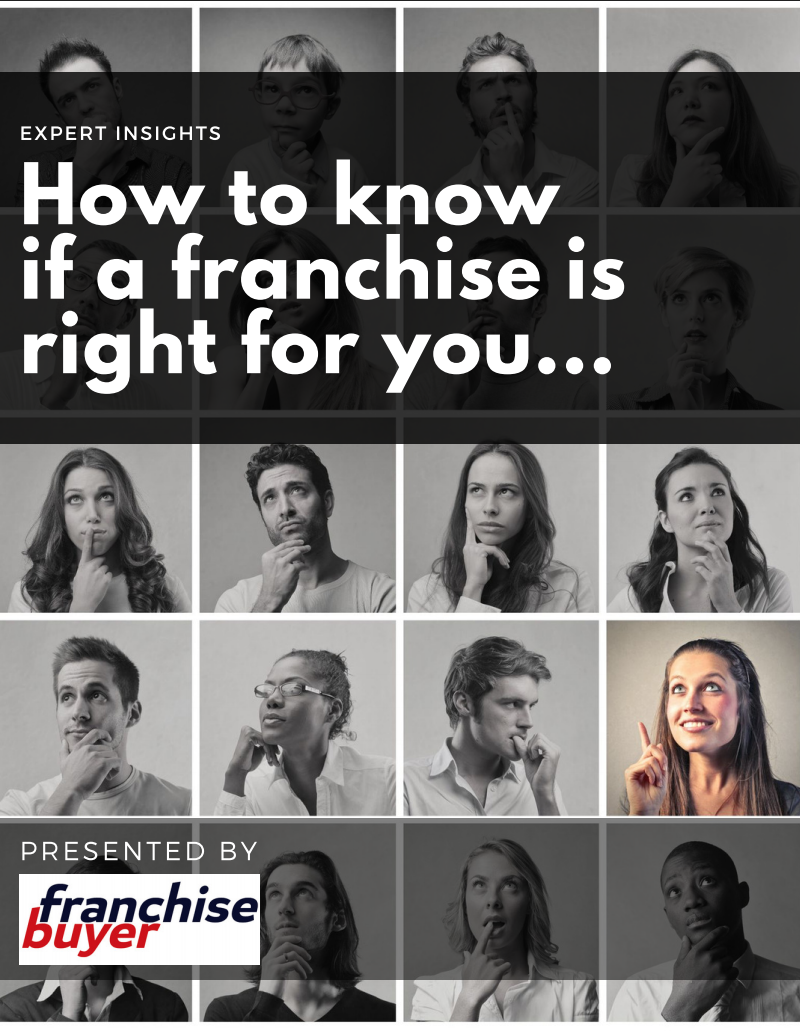March 22, 2019
“As a customer, I loved and believed in the business so much, that I bought the whole company.”
Raw Energy boss Matt Hope is committed to this innovative business model in the café/food retail market


Raw Energy is a café franchise brand with a reputation for offering healthy, fresh nutrition options and an emphasis on sustainability. At present, concentrated mainly on South East Queensland’s Sunshine Coast, there are also a few outlets on the Gold Coast and in Toowoomba, Townsville, Brisbane, Newcastle and Wollongong. Three of the current 14 outlets are corporate-owned, the remainder franchised. CEO of the up-and-coming business is Matt Hope, who was sold on the potential of the Raw Energy operation way before he bought into it.
“My introduction to Raw Energy was as a customer,” Matt says. “My [future] wife loved the café. I was based in Sydney and every time I flew up to see her — we were dating at the time — she’d take me to Raw Energy for breakfast. I thought it was such a great concept.”
Moving up to the Sunshine Coast after getting married, Matt heard that Raw Energy had started franchising. Geoff Campbell and his wife, Liz, had founded the company in Coolum in 1998 and he was now looking to grow. With a background in franchising, Matt figured he could give Geoff a hand and that Raw Energy’s enthusiasm for healthy nutrition was something he wanted to be a part of.

The things that attracted Matt
“There were a couple of things that attracted me to Raw Energy,” Matt says. “It was before a lot of alternative cafes had come along and Geoff was passionate about healthy eating. One thing that cemented it for me was an experience in a hospital cafeteria, just after my little girl was born. I watched a nurse choose a healthy sandwich and a juice.
But as she went to pay, she walked past the bain-marie. The temptation was too much, so she put the sandwich back and chose fried food instead. I remember thinking if those fried food options hadn’t been there, she would’ve made a healthier choice.”
Matt is adamant that the nutritional choices inside a Raw Energy café have to be positive ones. “That’s why we never have and never will — offer soft drink,” he says. “If people’s kids don’t see it then they generally won’t ask for it.”

Seeing how to grow the brand
Having seen the Raw Energy operation at close quarters, Matt reckoned he knew what was required to grow the brand. “I gave Geoff a call to discuss what he was looking to do with the brand. He was fantastic at running a café, but he didn’t have the experience of working with franchisees to grow the business. We talked about going into partnership so I could look after that aspect of the business for him. In 2010, we joined forces to take the brand forward.”
Matt certainly wasn’t a stranger to the world of franchising. He’d been involved with G.J. Gardner Homes since 2004 and owned the NSW/ACT and WA market franchises for the brand. “When we took on Raw Energy, we already had about 17 franchises under the G.J. model,” he says. “Franchising is something I’ve always loved because your success comes off making other people successful. That’s something I’ve always tried to do with all the brands I’ve been involved with — to make sure first and foremost that the franchisee is successful. Some franchisors try to take franchisees for as much as they can early in the piece, but that’s certainly not a sustainable model. Maybe we’re growing the brand a little slower than we could otherwise, but I’ve got no interest in changing our approach.”

Eating habits are changing
The Raw Energy brand has literally grown up near the beach, and Matt is the first to admit that the laid-back, healthy vibe is good for business. The fact that popular demand for healthy food continues to rise is also a plus.
“During the eight or nine years I’ve been involved with the brand we’ve certainly seen a big change in people’s eating habits. We’re never going to appeal to 100 per cent of the market and, to be honest, we really don’t want to. But our goal is to provide great options for those people who are really interested in getting a healthy meal.”
But providing top-quality food doesn’t have to mean charging top prices, as long as you’re a smart operator, Matt says.
“We’re confident we can accommodate paying reasonable prices for the produce we use. We’re not a McDonald’s or one of those big franchises that serve very cheap meals to people, so we don’t have to buy our produce at a rock-bottom price.
We’re certainly not at the lowest price point for cafes — we’re not at the highest, either — but we maintain that balance between sustainability, good nutrition and prices. It’s a bit of a tightrope, but we’re not compromising for the sake of getting something cheaper.”



Sustainability commitment
That focus on nutrition is complemented by a similar determination to reduce the use of non-recyclables in its cafes and source its produce ethically and sustainably. For example, Raw Energy has joined forces with award- winning barista Tim Adams to produce its own blend of specialty coffee, called “Steve”.
“We’re trying to do a lot more with making sure everything we use inside the café is sustainable,” Matt says. “We’ve removed all plastic straws from the business in the past couple of years. We’ve partnered with coffee roaster Tim Adams in the production of our coffee, and most of the food we offer is actually made in-house. We use local suppliers as
much as possible and try to support our local communities. I’d say, 90 per cent of what we use in our Sunshine Coast cafes comes from local suppliers. The customers seem to respond well to it, too”
Matt notes that Raw Energy is also focused on minimising food waste. “We’ve just gone through a menu
consolidation project in the past three or four months. We slimmed our menu down to ensure basic grocery items are used across a lot of the products — rather than buying in one or two items purely to create a specific menu item. We’re now starting to roll it out in the cafes.”
Matt gives full credit to his franchisees for coming up with most of the good waste-saving notions.
“A lot of the great ideas actually come in from the franchise network. Some of the cafes, for example, give their coffee grinds to local gardening clubs to use as fertiliser — as opposed to dumping it into fill and having no use for it. The best ideas I’ve ever come across have always come from within the franchise network. In fact, my job as a franchisor is really to bring the best ideas out of the group — and eliminate the bad ones. Being willing to listen to individual franchisees, the guys who are on the ground doing it day in, day out. They’ve always got the best insights into how the brand can progress as well.”
In 2016, Matt bought out his partner’s share and the two cafes that Geoff owned.

Expansion into new markets
Matt is also the founder and CEO of Colour Capital, the operating entity for G.J. Gardner Homes (NSW/ACT), G.J. Gardner Homes (WA) and Raw Energy Cafes. An investment group bought out part of the parent company a little over 12 months ago. “Colour Capital handles the franchise-management side of the business,” he says. “The businesses we run all come under the Colour Capital umbrella. My staff are mostly employed under the Colour Capital banner and then we utilise them for whichever brand requires those resources at the time.”
Expansion plans are on the table, with Matt about to fly to LA to finalise a major deal. “We’re actually finalising the regulation at the moment, so I can’t give you any details,” he says. “I should have some news in a few weeks. It’s a big international brand and we’re looking to take on the master rights in Australia and New Zealand.”
When it comes to expansion, Matt has some guiding principles in the way he approaches it.
“You’ve got to learn to crawl before you can walk. Make sure you’ve got a sustainable model before trying to work out a growth strategy, trying to replicate the brand each time going forward. You learn something new each time by the way the brand operates in that particular market. We’ve learned a lot of lessons over eight years — certainly not everything we’ve done has been successful, but we’ve learned enough to be able to grow a great brand going forward.”
Finding the right site is always his biggest headache, says Matt. He reckons the key is to make sure your growth is sustainable in the long term.
“The sites are by far the hardest aspect to get right. We want to make sure each franchisee we partner with is set up for success from day one. You’ve got to be wary of trying to grow too quick, too fast. It only takes a couple of small missteps to really damage your brand.”
Picking the right franchise partner is also crucial. “We have a fair process we go through in assessing potential franchise partners, getting the right person and ensuring the brand fits with them, as well,” Matt says. “The franchisor really has to put the franchisee first. If you don’t make decisions for the benefit of the franchisee, then it’s going to bite you in both the short and long term.”
















